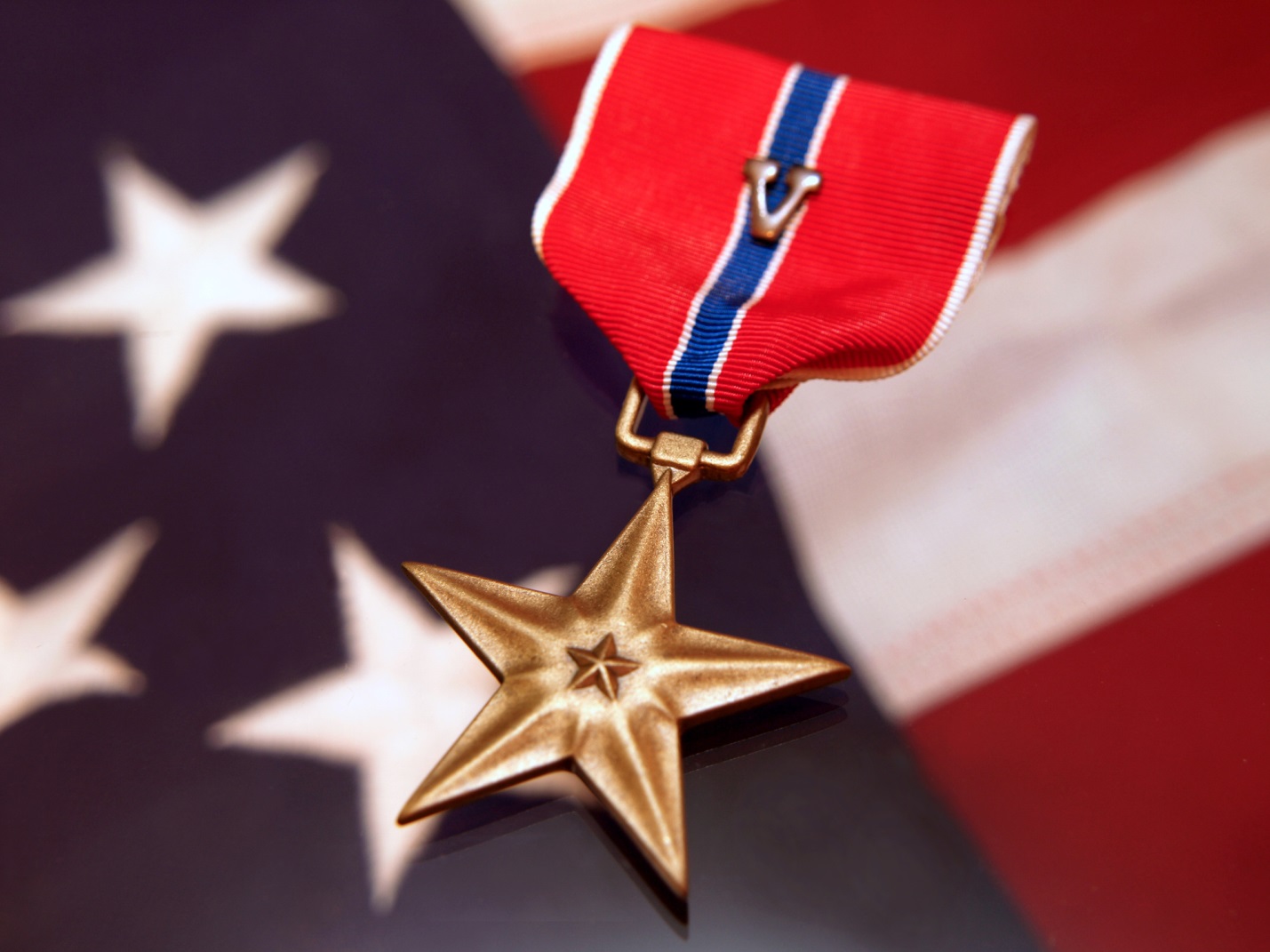Category: News
ContentRally is a leading source of reliable news and trending topics on World News. Get hard-to-find insights and advice on World News from industry-specific leaders.

Medal of Honor History: 9 Amazing Facts You Need to Know
The Medal of Honor: a highly respected title which perfectly describes what it takes to be given this renowned award. Honor. Bravery. Sacrifice.And that's just to name a few.Since its inception in 1862, the Medal of Honor has been awarded to only the most deserving of US Soldiers, Sailors, Airmen, Coast Guards, and Marines. Those who have risked their lives for others, and for the greater good of the country, displaying "gallantry in action" and other soldier-like qualities.The Medal of Honor history is a long and admirable one that gets deeper with every passing ceremony.While most of us have a general idea of what this medal entails, there's always room to learn more. And since it's the most prestigious award given by the US military, it's certainly worth a lesson.Let's see why this award means so much. Medal of Honor History: 9 Awesome Facts : We've compiled a list of things to know about the Medal of Honor and its origins.Want your own Medal of Honor memorabilia? See page for details on how you can honor this timeless tradition - and then get reading. 1. Started by President Abraham Lincoln in 1862 : Also called the Medal of Valor in its beginning, the Medal of Honor was established in the young years of war. Lincoln gave the award to six soldiers for their exemplary performance in the Civil War. 2. Going Beyond the Call of Duty : The Medal of Honor goes beyond the normal call of bravery. Those who receive the award have sacrificed majorly.In fact, sixty percent of those who receive the award do so after they have already passed. Killed in action: the major sacrifice of a man for his fellow man.Others have been awarded for the likes of running into a fire to save a comrade; tossing away live grenades, and submersing themselves in extreme enemy fire to protect someone else.As former President Obama stated during a ceremony: "This is the stuff of which heroes are made. This is the strength, the devotion that makes our troops the pride of every American."Those who receive this award are the epitome of that strength and devotion. It's not your average soccer trophy. 3. Nineteen People Have Been Double Recipients of the Award : A whopping nineteen people were eligible not just once, but twice, to receive the coveted, valued Medal of Honor.With ranks covering the categories of Major, to Sergeant, all the way to a Fireman, these honorable few have sacrificed themselves in the most honorable of ways. Twice. 4. The President Always Gives the Award : A tradition which began when President Abraham Lincoln awarded the first Medals of Honor to six soldiers who were members of a raiding party that went headfirst into Confederate territory to destroy bridges and railroad tracks.The tradition continues to this day, as recently as our last two US Presidents having given Medals of Honor. 5. Over 3,400 Medals of Honor Have Been Awarded so Far : Since only 19 people have been awarded twice, that means that over 3,362 individuals have passed the honored test, risking their lives and going above and beyond what was expected of them. 6. Only One Woman Has Ever Received the Medal of Honor : Out of the whopping 3,400 recipients, only one woman has ever been awarded the medal.Her name was Dr. Mary Walker. As a prisoner of war for months, a women's doctor, and an outspoken feminist, President Andrew Johnson believed her to be honorable enough to deserve the medal. However, awarding Walker was controversial at the time, especially considering Walker was never a commissioned soldier.Her award was ultimately rescinded due to the fact of being a civilian - but in a classic, rightfully stubborn form, she held onto the award until she died!Later President Jimmy Carter actually re-issued the honor in her name. 7. Recipients Have Participated in 24 Different Battles and Wars : From WWI to WWII; Iraq and Afghanistan; the Korean War; Vietnam War; Civil War; and over a dozen others, US soldiers have paved the way for greatness across the board.When conflict strikes the US, we have a tendency to strike back harder. 8. There Are 71 Total Living Recipients Today : Of the 71 still living, most were members of the US Army, with Marines being second; the Navy third; and the Coast Guard fourth.One of the most recent awards was given to Forent Groberg in 2012 for tackling a suicide bomber. While serving in Afghanistan, this Army soldier was badly injured while sacrificing himself to save fellow soldiers (which he did).This ceremony marked only the 10th time that a living service member has been awarded the Medal of Honor for efforts in Iraq or Afghanistan. Seven other fighters in this conflict received the award posthumously, or after their passing.After tackling the bomber to the ground, the vest detonated, injuring but not killing Groberg, and therefore saving the lives of many.In true honorable fashion, when Groberg learned of his receiving the award, he dedicated it to his fellow soldiers. 9. The Congressional Medal of Honor Society : The Congressional Medal of Honor Society was started to create a brotherhood amongst recipients of the awardUnlike most societies, the CMHS hopes to have no new members.New members mean that soldiers must take action in times of war. In this way, the CMHS prides itself on being exclusive to the 71 remaining soldiers. Honor Your Country : There's a reason why the Medal of Honor is the highest award that can be given by the US military. Those who receive the medal are members of an elite, exclusive society: those who could have, or did, die in the name of protecting their country and their comrades.Not many people can say they deserve this honor. In fact, since its origins in the 1800s, less than 4,000 people have received this high recognition; and they hope that no one else will have to.Always remember these people when learning medal of honor history.If you know anyone who has received this honor, tell us their story. We love hearing from our users!
READ MOREDetails
Major Regulatory Approvals for Cross Border Acquisitions
Cross-border acquisitions can be impacted by a wide range of factors, so it is essential to develop a comprehensive framework for dealing with all the aspects of the acquisition process. Such a framework was presented last year at the Spring CLE ACC event. The presentation was put together by Jason Rabbitt-Tomita and Carrie LeRoy, two partners at White Case, one of the most prestigious international law firms. Their framework included all aspects of such a transaction from the processes and the timing, to due diligence, intellectual property matters, employment considerations, dispute resolution, and tax structuring. However, the largest segment of the presentation was focused on the major regulatory approvals required in international acquisitions, as these are usually the most time consuming and the most challenging processes in cross-border transactions. Antitrust : In regards to the antitrust laws meant to promote fair competition for the benefits of the consumers, cross-border deals can be subject to numerous reviews in different jurisdictions. As such, the buyers must be prepared to engage the Antitrust counsel and present the worldwide turnover of the target company. It is essential to identify possible antitrust risks and concerns and be prepared with prompt solutions CFIUS : The Committee on Foreign Investment in the United States can put major obstacles in the path or a cross-border acquisition, especially when it comes to tech companies. The major focuses of the CFIUS reviews are threats, vulnerability and risk profiles. In other words, they analyze whether foreign acquirers can exploit vulnerabilities or cause harm in matters of national security. The CFIUS approval process usually consists of consultations and other preliminary work, an initial 30-day review, a 45-day investigation, and a 15-day presidential review. Regulatory approvals in the People’s Republic of China : At the moment China is the biggest competitor of the California tech scene, but Chinese investors must jump through a lot of hoops to play in international markets.SAFE – The State Administration of foreign exchanges is in charge of all foreign exchange matters in China. Chinese purchasers must register all outbound investments to convert RMB to foreign currency and make outbound transactions and remit foreign currency. This registration is dealt with after dealing with MOFCOM and NDRC. MOFCOM – China’s Ministry of Commerce of their local offices must approve foreign investors for certain industries such as telecommunications, media, education, theme parks, and a few others. NDRC – The National Development and Reform Commission must approve all outbound investments of more than US$300 million from China. This approval can easily be gained with merely a formal filing, as long as it does not involve sensitive countries or industries.Other regulatory approvals : As we already mentioned, each country can require different regulatory approvals for foreign investors, so it is essential to analyze from the start whether or not the transaction can be consummated under said country’s legislation for the target industry. It is very common for multinational companies to close certain countries separately. For example, transactions in India often delay worldwide transactions and are often signed separately. This can also happen in France, where employee consultation requirements call for binding offers, specifically created for the French subsidiaries.Read More : Things To Do In Israel That You Must Know Finding The Right Moving Company
READ MOREDetails















